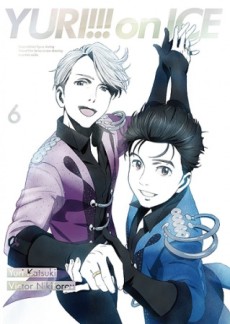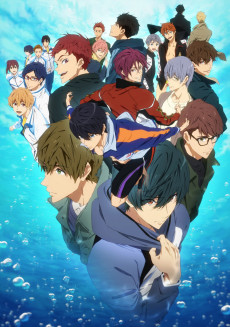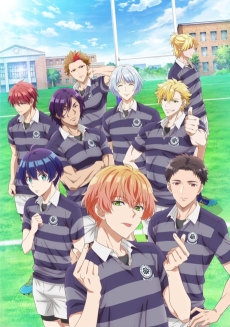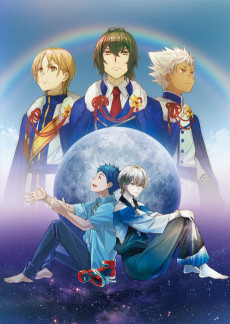YUURI!!! ON ICE
STATUS
COMPLETE
EPISODES
12
RELEASE
December 22, 2016
LENGTH
24 min
DESCRIPTION
Yuri Katsuki makes his way to the Grand Prix ice skating competition as Japan’s top representative with his eyes on the prize. However, instead of celebrating, Yuri walks away defeated and ready to retire for good. But a run-in with champion Viktor Nikiforov and rising star Yuri Plisetsky ignites a new fire within him. With the two of them close by his side, Yuri will take to the ice once more.
(Source: Funimation)
CAST
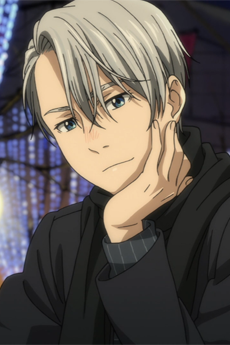
Victor Nikiforov
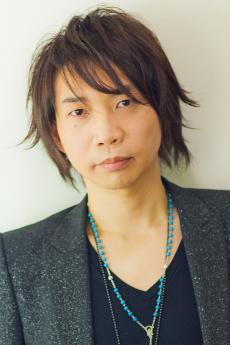
Junichi Suwabe
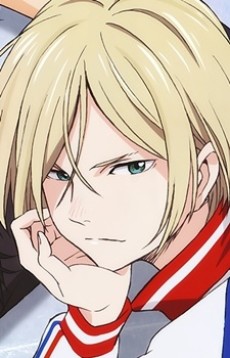
Yuuri Plisetsky
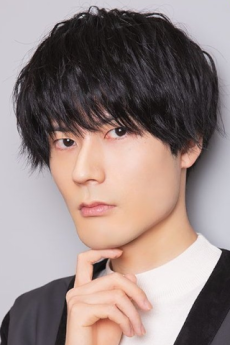
Kouki Uchiyama
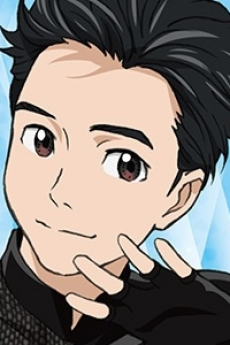
Yuuri Katsuki
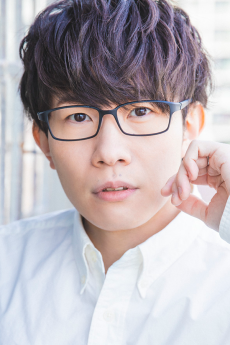
Toshiyuki Toyonaga
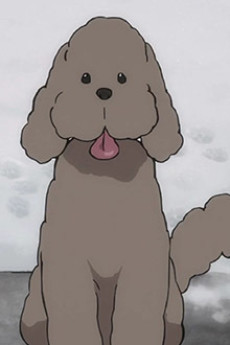
Makkachin

Junichi Suwabe
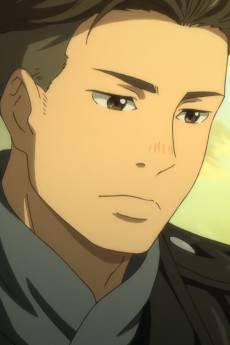
Otabek Altin
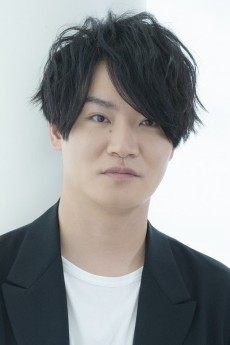
Yoshimasa Hosoya
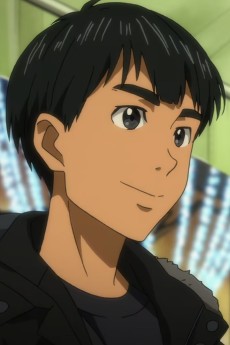
Phichit Chulanont
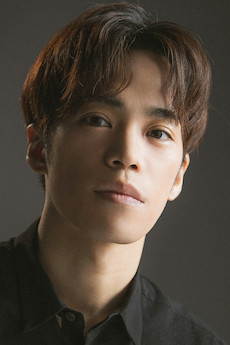
Kenshou Ono
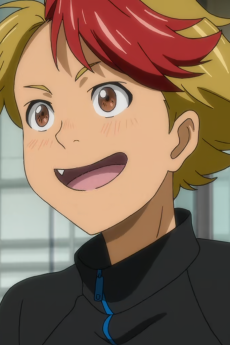
Kenjirou Minami
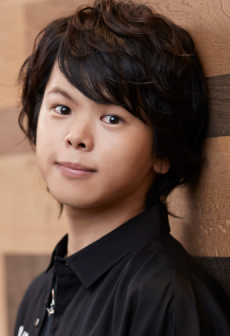
Ayumu Murase
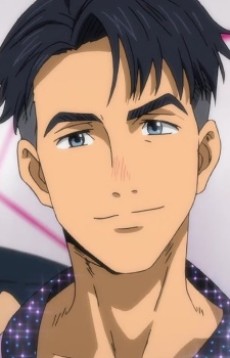
Jean-Jacques Leroy
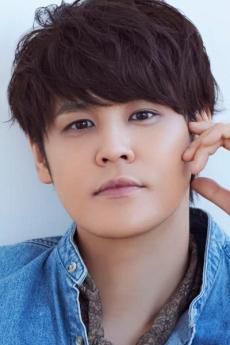
Mamoru Miyano
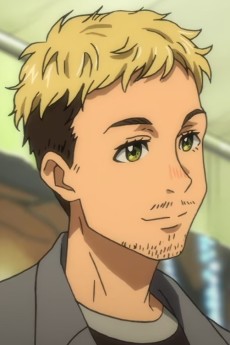
Christophe Giacometti
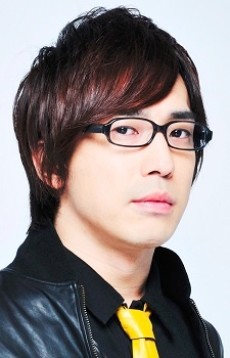
Hiroki Yasumoto
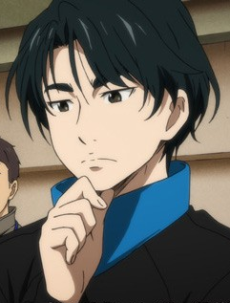
Seung-Gil Lee
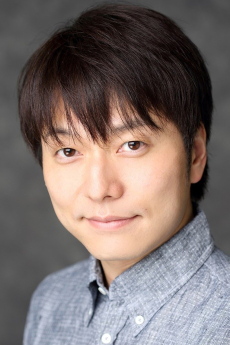
Kenji Nojima
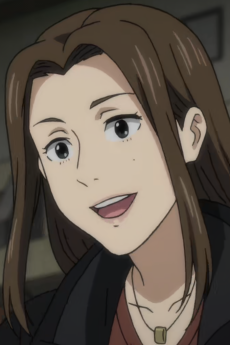
Minako Okukawa

Yuka Komatsu
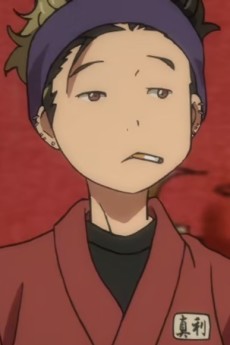
Mari Katsuki

Kyouko Sakai
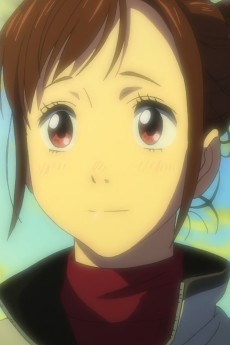
Yuuko Nishigori

Mariya Ise
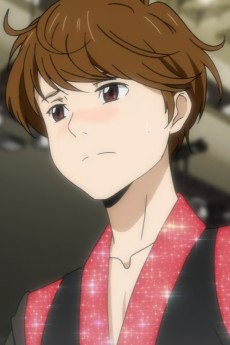
Guang Hong Ji
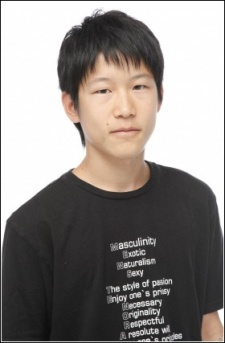
Yuutaro Honjou
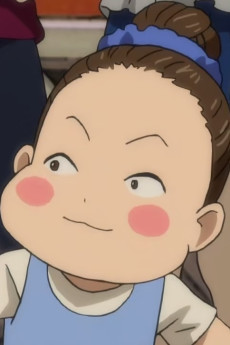
Lutz Nishigori
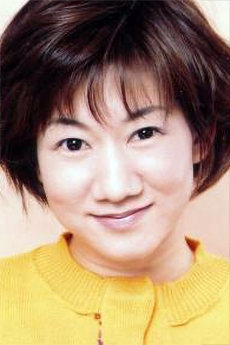
Aki Uechi
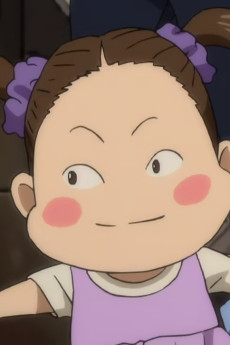
Axel Nishigori

Aki Uechi
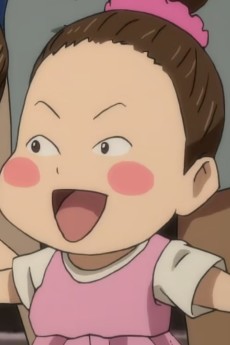
Loop Nishigori

Aki Uechi
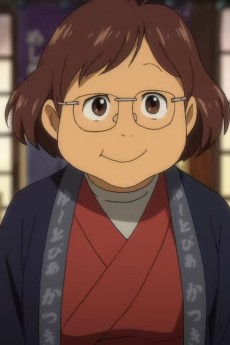
Hiroko Katsuki
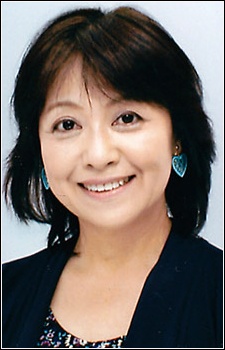
Kei Hayami
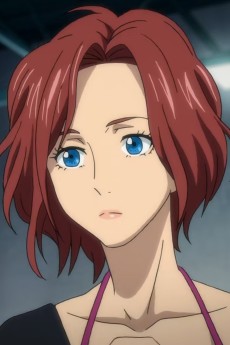
Mila Babicheva

Mari Doi
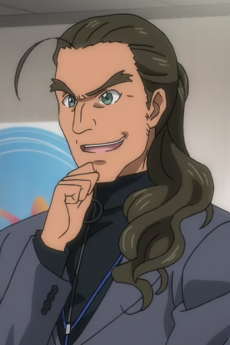
Celestino Cialdini
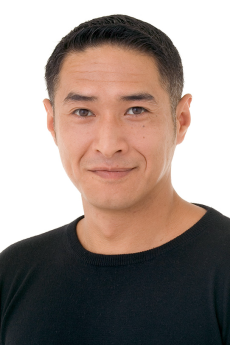
Kouji Ochiai
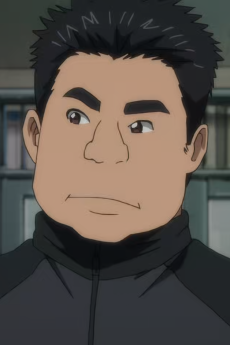
Takeshi Nishigori
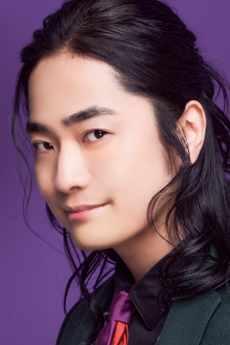
Jun Fukuyama
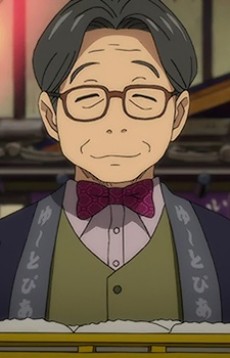
Toshiya Katsuki

Souryuu Konno
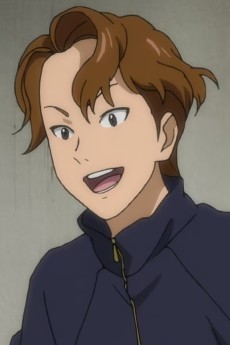
Hikaru Fujiwara
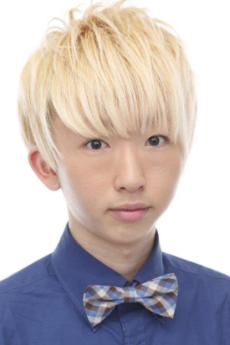
Tomonori Ishihara
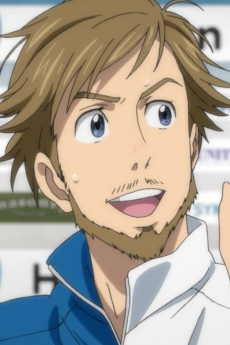
Emil Nekola
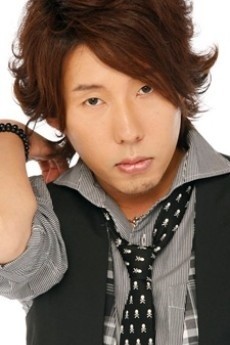
Satoshi Hino
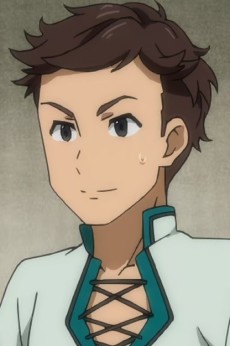
Yuuto Omiki

Satoshi Nakao
EPISODES
Dubbed
RELATED TO YUURI!!! ON ICE
REVIEWS

TheRealKyuubey
90/100A genuine treasure, less than perfect but still exceeds the sum of it's parts.Continue on AniListThe world of competitive figure skating can be a harsh one indeed. That’s not to say the competition is cut throat or anything… Hell, the atmosphere between competitors seems to be downright friendly. On the contrary, the strain it puts on your body and mind can be absolutely brutal, as Japanese prodigy Yuuri Katsuki finds out after suffering a crushing defeat in the Grand Prix Finale. Already plagued by anxiety and self confidence issues, the downtrodden skater disappeared from the sport, looking to find himself, but eventually giving up and going home. All looked lost for the dejected and now portly 23 year old until a video of him skating the legendary routine of his idol Victor Nikiforov, and when it manages to catch the champion’s attention, Yuuri’s world is turned upside down when Victor shows up at his home and demands to become his coach and help him to realize his true potential. Unfortunately, Victor isn’t the only one taking an interest in him, as the international media comes knocking, and a fiery young rival decides to challenge him for Victor’s tutelage. Will Yuuri be able to realize his dream, or has his career been put on ice for good?

When I first started watching Yuri on Ice, I was honestly surprised that it didn’t have any strong connections to Studio Bones, as certain elements of the visual style seemed really close to some of that studio’s more goofy comedic work, like Soul Eater and the two Fullmetal Alchemist series. It was actually animated by a studio called MAPPA, or Maruyama Animation Produce Project Association, which was founded in 2011 and released it’s first title in 2012, and which was created by former members of Studio Madhouse. Now that I know that, I do kind of see it in a lot of the show’s more serious moments, but the fast paced comedic moments are still such a dead ringer for FMA that I can’t help but think it was at least partially inspired by it. Granted, this may just be because the animation style and visual direction feels really loose and experimental in the first episode, where it feels uncannily like they were still trying to figure out what the visual aesthetic should even be.
Whatever the case, I’m glad they were able to nail down a solid direction before episode two, because beyond that sort-of-messy first impression, the series is absolutely gorgeous. The fluidity of motion isn’t exactly consistent, as there’s a very clear divide between the content that had a lot of money poured into it and the content that didn’t, but despite this, it never allows itself to look bad. One of the tactics MAPPA uses to achieve this is going through the cheaper scenes via some really fast editing, using short cuts to keep your eyes from ever getting bored, although this does come with the drawback that at times, the story can move a little too fast. There are quite a few transitions, and even some entire scenes, that fly by almost quickly enough to give you whiplash, especially in the first episode. Thankfully, the scenes we rush into are usually fun and memorable enough to justify whatever we might have lost getting there, so it’s really not that big a deal in the long run.
But as far as the animation goes, the one thing everyone seems to remember the most strongly is the animation of the skating routines. Whenever someone steps out onto the ice in this series, the animation changes, at least for that character, so something that feels like a cross between rotoscoping, and the 3D dance animation from shows like Love Live. Now, both of these animation styles on their own have their pros and cons, but Yuri on Ice really does seem to combine the best of both worlds, as long as you’re not concentrating too hard on the characters faces, and the routines look absolutely beautiful as a result. Not only does it look amazing, but it seems to also capture the feel of performing, and of being in the spotlight to showcase everything you have in front of millions of screaming onlookers, almost as if you’ve transcended humanity itself for one fleeting moment that you’re able to shine. It’s as if the characters performing on the ice are in another world, and the rest of us are just living in it, which unfortunately does lead me into my only real complaint about the visuals.
Well, specifically, it’s a complaint I have with the character design department. When we catch up with Yuuri in the beginning of the series, he’s gained a considerable amount of weight in his off time, which creates a weird inconsistency with his actual weight. His gut seems to be working via ecchi boob physics, as it’s about three times larger when unclothed, which wouldn’t be such a problem if it didn’t also create an inconsistency in the story. Upon becoming Yuuri’s coach, Victor insists on making Yuuri lose weight so he can skate properly, but wasn’t Yuuri still fat when he inadvertently got filmed dancing the routine that caught Victor’s eye in the first place? Yeah, for that first routine scene, his girth suddenly disappears from both his gut and even his face as he performs, which alludes to the ‘feel of performing’ idea that I brought up earlier, but that kind of inconsistency should stay psychological, and not creep into the physical world of the story. Aside from that, the character designs are still more or less fine, with skater characters being designed as wonderfully flamboyant and sporting realistic-looking physiques, and outsiders generally taking on more cartoony looks.
Also, does anyone else really want to try a pork cutlet bowl now? They just make them look so freaking good.

Being that this is a story about ice skating, you’d expect there to be a very high bar to pass in regard to the soundtrack, and good God does Yuri on Ice deliver on that front. I wish I could go into explicit detail about the plethora of beautiful tracks that are featured, but my research had unfortunately refused to bear fruit. Aside from covers, I can’t seem to find any of the actual music on youtube, and outside of a thirty-seven dollar physical CD, I can’t find the soundtrack on Amazon either, so I’m going to have to work off of memory when I tell you just how amazing the compositions are. I don’t know how much(if any) of it came from the public domain, or if it was all original, but not one of these tracks felt out of place in the setting, and they matched the characters dancing to them exquisitely. My favorite tracks that I can remember would have to be the classic rock inspired tune that Kenjiro Minami uses, and Love Eros, the salsa-esque tune that inspires Yuuri to finally discover and define his sexuality.
If there’s one piece of music in the series that I’ll probably never forget, it’s the opening, History Makers, which is easily one of my top ten favorite opening themes of all time. The song is performed in English, but despite being an original piece for the anime, it doesn’t sound even remotely Engrish. It’s performed by Japanese megastar Dean Fujioka, who not only wrote the song in perfectly coherent English, but he belts it out with all the power of Freddy Mercury, who I’d bet was a major inspiration for the piece. The ending theme is called YOLO(Yeah, I know that’s not actually the title, but somebody had to point out the connection), and unlike the opening, it’s only partially sung in English, with the music being EDM. I’m not a fan of this one, but it’s okay. It’s also worth noting that several insert songs that previously had Japanese lyrics have been translated by the dubbing team, and while most of them range from good to all right, the dubbed version of JJ’s theme is a bit on the cringey side.
Speaking of the English dub, it’s clear that Funimation knew they had something special on their hands, because they pampered the fuck out of it. They gave directorial duties to Sonny Strait, who’s always been a smart and responsible choice, and he churned out a translation that was both respectful and accessible. Starting with the main cast, Josh Grelle does an outstanding job taking a character that could have been comparable to Shinji Ikari in the wrong hands and presenting his insecurities in a relatable way, drawing a distinct line between the shades of hope and despair that he goes through in the story. Jerry Jewel, in turn, plays off this sense of vulnerability in an appropriately lovable and goofy manner, but is still able to convey drama when Victor has to be serious, and inspiration when he has to be supportive, all while sporting a fun but somewhat cartoony Russian accent, and thankfully, the two of them are able to portray a very believable level of sexual and romantic chemistry, giving their character’s admittedly ambiguous romance some much needed gravity.
Of course, while Victor’s accent may not sound the most believable, Micah Solusod makes up for it in spades with his portrayal of the ambitious Yuri Plisetsky, who he plays with an accent that’s unbelievably perfect. He apparently studied the language vigorously, and even hired a dialect coach, and the result sounds so authentically thick that you’d be surprised to learn he isn’t a native speaker drawing from personal experience, like Todd Haberkorn was in Baccano. The rest of the cast is filled out by Funimation regulars, all of whom put on strong performances. While Sonny Strait and Vic Mignona didn’t have to do very much in their roles as skating commentators, they’re still a joy to hear either way. Despite being famous for his deep voice and low, gravely register, Chris Sabat dazzles in the opportunity to go against type as a highly effeminate Swiss skater, and Jeremy Inman pulls off a nicely subtle Canadian accent as the cocky JJ. Colleen Clinkenbeard, J Michael Tatum and many more show up in small but still enjoyable roles in a dub that I’d definitely recommend checking out.
Yuri On Ice is an anime that comes with some pretty high praise behind it. No matter where you look, it was easily the most popular title to come out in 2016, and it garnered rave reviews from both critics and general audiences alike. You’d normally expect a title that’s been held up on that high of a pedestal to have suffered some backlash as a result, but the negative reactions have been fairly subdued. It’s probably the most mainstream LGBT-themed anime that’s come out since Revolutionary Girl Utena, and while it’s certainly a lot more accessible than Kunihiko Ukihara’s seminal classic, it’s somehow inspired just as much debate over whether or not over whether the alleged queer elements are even really there, or if they’re just the product of a bunch of delusional shippers and frustrated LGBT otaku just seeing what they want to see in it. Actually, considering the fact that there’s an upcoming movie for the series that’s carrying the ominous subtitle of ‘Adolescence,’ that comparison might not be as wild as it sounds. What kind of car do you guys think Victor will turn into, anyway?
As for me, I’ve seen the show a few time, and I have to admit, it does have a lot of things going for it. In addition to the amazing visual and audio quality, and the stellar English dub, the story is built around three incredibly strong main characters. Between the two Yuris, I can find different parts of my life where I find both of them intensely relatable. With the main Yuuri, I can easily identify with his lack of confidence and personal anxiety, wanting to run away from things I feel I’ll never be good enough for, getting crushed over my losses and wondering why I should even bother wasting my time at things that I just don’t think are going to work out. With Yurio, I can relate to the exact opposite… When I actually am good at something, I just want to dominate at it, prove my superiority, and be recognized as the best while people I feel are less deserving should move out of my way and fall by the wayside. And yet, ironically, my favorite character is actually the one I don’t relate to at all, that being Victor, just because he’s the kind of supportive, kind-hearted person you just want to be friends with.
This all ties in to the main thing Yuri On Ice gets praised for, it’s LGBT elements and over-all homosexual overtones. There are a lot of people who consider Yuri and Victor to be one of the best, if not the best, queer relationship in anime, and the backlash to this has mainly been confusion over whether or not they were ever in a relationship in the first place. The first time I watched it, I was in this camp, and I was disappointed that the series never ‘went there,’ AKA the two were never canonically confirmed to be a couple. On a second watch, however, I feel like I can confidently say that, oh yeah, they went there. They just didn’t tell you that they went there, which in some ways makes the representation even stronger. If you know where the show’s going ahead of time, it’s a lot easier to read between the lines and pick up on all the subtext without needing some grand romantic moment to confirm what you’re seeing, and I honestly feel kind of dumb for not picking up on it all the first time… But this had some consequences that you may be a little torn about.
If you’re going to have a subtle romantic plot that never makes itself obvious, then the other elements of the story have to be strong enough to support it, and depending on your perspective, that might be where the series falls flat. For starters, the cast is bloated with seemingly random side characters, and while they were all given at least enough attention to have unique identities and backstories, they wind up being forgotten about so quickly that they honestly just wind up feeling interchangeable. Sure, there are a few moments when the thoughts going through a character’s mind might carry some parallels to Yuuri and Victor, but their actual connections to the main cast or the main plot are tenuous at best and non-existent at worst. Is that a bad thing, though? You’re not really given any reason to care about them or their problems, but I don’t really think you’re supposed to. I feel like the series was going for something more along the lines of a real life feel, which is a bold line for a fictional story to walk.
In most stories, I want everything I’m seeing to be somehow important. But that doesn’t mean everything has to be deep and interconnected. In Toradora, one of my favorite moments was the reveal that one of the side characters had actually managed to get a girlfriend, because it was a reminder that the characters had lives outside of Ryuji and Taiga’s drama. Well, in Yuri on Ice, everybody in the competition has their own life, everyone has their own problems, and the glimpses we get into their lives remind us that, like Yuuri, winning the gold isn’t the most important thing in the world, but a goal that they’ve placed some symbolic meaning onto. It actually kind of reminds me of Bojack Horseman, who got everything he ever wanted, but still wasn’t happy or fulfilled at the end of it. Success doesn’t denote happiness. This series is painfully aware of the age old trope called ‘the McGuffin,’ and it’s story very deliberately deconstructs it’s alleged importance in a character’s story arc.
It’s because of this that there are no real stakes in the competition. I won’t give away how things end at the Grand Prix finale, but Yuuri could have scored literally anywhere in the rankings and it wouldn’t have affected the conclusion of his arc. The same thing goes for all of his costars, even JJ, who defines his entire brand on success and perfection. I don’t think it’s an accident that the only character who never really feels fulfilled or complete is Yurio, the character who puts the most importance on getting that gold in the first place. He has the greatest thirst for gold, but one has to wonder, what happens if he gets it? What comes after that? More competition? More gold? He needs a true reason to compete, and he’s the only person there who doesn’t have one… For now. He’s young, and you have to figure that he’ll eventually move past his petty rivalry and find something more meaningful in life, but once again going back to Bojack Horseman, the opposite could also be true. So no, I don’t think the story is too weak to support a subtle romance. I think it works just fine.
While I get that the lack of confirmation in Yuuri and Victor’s relationship can be a sticking point for some, I would also like to point out that this is a series about finding something more meaningful in life than just the goals we set before us, and as such, it would follow that their relationship offers something more meaningful than confirmation. In terms of queer representation, there’s been a long trend of homosexual characters being plagued by two very negative tropes; The tragic ending, and the struggle against homophobia. To put it bluntly, a disproportionate amount of gay characters die, and a lot of straight audiences generally don’t accept queer characters as anything other than porn unless their plight is framed sympathetically… Things like bullying, disowning, societal stigma, etc. What Yuri on Ice presents is something we don’t see nearly enough… A positive, healthy same-sex relationship that’s been normalized to the point that it suffers issues beyond the obvious, which is both important and life-affirming, taking the high road and presenting a queer romance in such a way that completely desensitizes it.

Yuri On Ice is available from Funimation. There’s an OVA included with the English release that’s just three minutes of Yurio doing a new performance, but despite the lack of content, it may very well be one of the best things in the history of things. There’s also a movie scheduled to come out next year, which I already mentioned, and I’ll be damn disappointed if it’s either A) a condensed retelling of the series because I hate those things to death or B) anything but a completely incoherent mindfuck like the last LGBT anime movie with Adolescence in the title.
It’s true that Yuri!! On Ice won’t work for all viewers. I personally had to see it a few times to understand it, and I actually had to rewrite this particular review after hearing some of the thoughts that a friend of mine had on it. I did have a few issues with it, like how you had to watch the same skating performances over and over again with only slight variations in them, but it was a problem I was able to get over fairly easily. Even my issue with the side characters isn’t really a big deal, as the series may not give you a reason to care about them, but whether or not you do is entirely inconsequential. There’s more than enough to them to justify investment, and yeah, they all have their very loving and devoted fan followings, but even if you don’t give a shit about them, it doesn’t hurt the story or diminish them as people. I’m pretty sure it’s the first sports anime I’ve ever seen that dared to suggest there was something more important to competition than just the fleeting euphoria of victory, and that’s pretty special. I give Yuri!!! On Ice a 9/10.

AdmiralNyan
85/100Yūri!!! On Ice & Inclusivity via the Smashing of Offensively Stereotypical Gender RolesContinue on AniListYūri!!! On Ice follows a boy of twenty-three named Yūri Katsuki, who was once Japan’s most promising figure skater. However, after an agonising loss during the Grand Prix Finale, he returns home to consider his options for the future. One day while practising some skating at a local rink, a video of him performing his idol’s—Victor Nikiforov—programme gets secretly uploaded to the internet, where he reaps near-instantaneous fame overnight. In the wake of this viral video getting released, Victor catches sight of it and decides on the spot to head to Japan so that he may coach Yūri with his skating endeavours.
Before I jump into the main focus of this post, I would like to briefly discuss some of the more technical traits of Yūri!!! On Ice. The animation quality is mind-blowingly gorgeous! The artistic style implemented for the scenery around Japan is calligraphy inspired watercolour designs. The colours are vibrant and fit the respective seasons on such a marvellous level aesthetically speaking. During Autumn there’s dark orange with hues of purple and gold. Winter comes around the it transitions into darker purples with varying shades of blue, white, and greys. The outlines alternate between thin and thick brush strokes that captures the essence of traditional Japanese art. You see similar designs for each of the relative countries that the series takes us to, such as China, Russia, and Spain. On top of that, the vast majority of the show was rendered using 2D animation only, a feat that is nearly unheard of in today’s digital and technologically advanced climate. Yet, even with all of these things, my favourite aspect was the meticulous use of details that were woven into both the backgrounds and foregrounds. It made everything else pop in a subtle manner, while adding layers of dimension to the visuals.
The music is gorgeous as well and isn’t limited to Japanese instrumental styles or straight European classical songs, as would be expected from a series focusing on figure skating. We get music from around the world with songs in English, Thai, and more. The opening tune, History Maker, is filled with energy and romance that is the perfect compliment to just about every single motif explored.
The pacing is perfect! My expectation was a slow start with a rushed middle and an ambiguous finale. Things do progress a bit faster in in Yūri!!! On Ice than your typical anime, but it sticks with the initial pacing, and because of that everything else is wonderfully balanced to fit a twelve episode timeslot. There are three competitions that the characters go through and each one is given no more than two episodes a piece, leaving plenty of room to include actual storytelling rather than just one battle (so to speak) after another.
Those three technical facets tend to be make-it or break-it aspects for me when I pick up an anime. Everything else usually takes the backseat. If these three things are decent, then I know my overall viewing pleasure will be a rather… well, decent one. The only other thing that I positively adore with anime are themes, and when a series has a plethora of amazing themes to discuss, it can be so difficult to choose just one!
The theme I’d like to discuss is one that is quite near and dear to my heart, and also something that you may not see that often in otaku narratives but is finally making an appearance in some of the more contemporary serials (Banana Fish comes to mind instantly) and that is the theme of breaking common gender roles and expectations.
I recall from when I was a far younger individual, probably from around the time that I was between the ages of seven and eleven, figure skating was viewed as a prominently feminine sport. If there were male figure skaters, I would almost always be surprised to find them married to women. It had always been instilled into my head that figure skating was a sport for girls and any guys who partook were obviously gay. This terrible and outdated line of thinking wasn’t something I ever truly contemplated until recently.
How often do you see a guy wearing certain types of clothing, or even certain bright colours, and your automatic inclination was to view them as being “gay” or “girly”? The same can be said about their mannerisms. Yet, Yūri!!! On Ice takes those godawful stereotypes and preconceived ideals of what gender roles entail and blows them to smithereens, and I fucking love it.
I’m a gender non-conforming person. Growing up, I felt so weird buying clothes from the “girls” department. I didn’t care for dresses or fluffy, pink, and glittery things. But my mum loved that shit. Then as I got older, I would go look at clothes in the “men’s” department and I’d discover that those feelings of anxiety and discomfort never went away. Why is this jacket labelled as a “man’s coat” when it is literally the same thing as the one in the women’s department? Why can’t we just have “people” clothes and “people” mannerisms and etiquette? What is with this incessant desire to put a sticky note on everything with a tag that says “man” or “woman”?
Typically in anime—notably in sports anime—since there are so many male characters, you always have ones that are more ladylike in presence and behaviour, and they are almost always portrayed to be Queer. The same can be said about sports shows centring on female athletes, where the Queer ones are shown to be quite masculine. I find it to be offensive more often than not because I know plenty of gay men who don’t behave in such a way. The vast majority of them are just normal people that can’t be distinguished on appearance alone. I love that this specific series doesn’t use femininity as a gratuitous means of exhibiting homosexual dudes. It actual takes expectations and shatters them into tiny pieces by making these characters exactly what you wouldn’t normally expect.
These skaters dress in costumes laced in designs that shine and sparkle in the light. There’s mesh and nylon and satin and a lot of them tend to be very provocative and transparent. When you look beyond the attire of skating, you have individuals who are very masculine in nature. Yurio is the most obvious one with his rebellious attitude and attire of hoodies and chucks. Then you have another skater, named Otabek Altin, who wears a leather jacket and rides around on a motorcycle. He is the epitome of what people would label as “manly;” someone you may not expect to be a professional figure skater by far. It would be like imagining Dean Winchester doing a triple axle. Even when they put on their costumes and skate, their personalities never change. They don’t turn into these highly feminine individuals with a proverbial flip-of-the-clothing.
Likewise, you have a couple of characters that are feminine—to varying degrees—with their personalities and the ways that they engage with other people, such as the Italian performer, Michele Crispino. Some of things that he says and the flowery way that he engages with his sister, whom he’s quite protective of, can be construed as being rather effeminate. Yet, compared to Jean-Jacques Leroy (aka JJ), Crispino is quite low on that spectrum. JJ can be viewed as sensationally feminine. He exudes sexuality and a distinctly erotic vibe that most people would associate with a man that is gay, chiefly because his personality is exactly the same regardless of where he’s performing or not. Yet, he’s not gay at all!! He’s engaged to a woman.
Another more relevant example is Yūri himself. Victor is teaching him to step outside of him comfort zone in order to become the best figure skater that is possible for him. The song he’s tasked with performing to is all about being super erotic and seductive, and conveying sensuality, similarly to JJ but without garnering such a strong presence of sex. Yūri flirts with his eyes and his body movements, which allows him to create one hell of a programme. Not once did I ever feel him as being one gendered role over another. I simply saw him as a person. One individual that is working hard at what he loves.
Yūri!!! On Ice does a phenomenal job of breaking stereotypical conforming gender roles by showing watchers that men can behave in whatever manner that suits them and it’s not emasculating on any level and that there is nothing abnormal about it. You also see this with the women who tend to be gruffer and stiffer. Yurio’s ballet instructor and co-coach is an older woman who has a deeper voice and quite a masculine way of presenting herself. Nevertheless, she wears make-up and instructs ballet dancers on how to encapsulate pure beauty in astoundingly disciplined ways.
Terms like masculinity and femininity have no place in the anime and I strongly believe that they should have no place in society either. I do use them in my post here, but that is to convey the point I’m trying to make, not because I believe in what they stand for. Every single character is highlighted as a distinct human being who isn’t categorised into Box A or Box B because they have a penis and like to wear fancy costumes, or vice versa. Most of the folks in the serial who epitomise conduct outside of their assigned genders aren’t even anywhere close to being gay or Queer. When you do have people that are Queer, such as Victor and Yūri, their relationship is viewed as any heterosexual one would be: a gradual building of emotion between two people who get to know and understand one another in a highly intimate manner and setting. It is the most natural and lovely type of slow-burn romance that I could ever ask for.
Characters aside, another example of these moulds being broken against the ice is the way that figure skating itself is depicted. It is treated with utmost respect and shown to be one hell of a challenging sport that has many obstacles to it, none of which are gender specific. I always knew on a subconscious level how competitive figure skating is, mostly from my time watching the Olympics as a child, but I never knew all of the smaller details that these skaters have to learn in order to perform on such an outstanding level. Ballet, for example, never crossed my wee little mind as something that skaters would need to learn. However, in hindsight and also post- Yūri!!! On Ice it makes total and complete sense that things like ballet and also gymnastics would be relevant things to partake in to be a professional figure skater.
Whenever I learned something new about the different types of activities that skaters had to learn, to the mental and emotional pressure of outperforming your rivals and how unbelievably close it can get, to the expectations of people with specific established careers or folks in certain age brackets—none of these ever screamed out to me that it was all women-specific or stringently feminine. Hell, none of them even hinted at any specific gender roles whatsoever.
I have read many reviews for the show that were mostly written by people who watched the first two episodes of the series and then dropped it because they felt like it was a girly series that made then uncomfortable. Or they felt that there were “too many gays” for them to really connect to the story. Yet, after having seen the whole thing, I call super fucking bullshit. It’s because you don’t get this sort of shitty dehumanising crap from Yūri!!! On Ice that makes it such a brilliant series to watch.
Overall, Yūri!!! On Ice is damn-near perfect in every sense. Whether you are a person that prefers breath-taking visual cinematography, excellent music, character-rich stories, narratives about the underdog, themes on persevering, or just a show that is straight up fucking inclusive as all bloody hell, then you need to watch this anime as soon as you can. You honestly won’t be disappointed. It will make you laugh, cry, and feel so, so inspired.
8.5 pork cutlet bowls outta 10!

Kalladry
85/100Fun, sweet and often humorous, with a great soundtrackContinue on AniList_Yuri Katsuki makes his way to the Grand Prix ice skating competition as Japan’s top representative with his eyes on the prize. However, instead of celebrating, Yuri walks away defeated and ready to retire for good. But a run-in with champion Viktor Nikiforov and rising star Yuri Plisetsky ignites a new fire within him. With the two of them close by his side, Yuri will take to the ice once more. As Yuri begins regaining confidence in his skating and in himself, his relationship with Victor slowly evolves into something more intimate._ Yes, yes, I know I’m usually several years behind on the popular series, but it’s actually kinda fun to watch something after the furor has died down? YOI was everywhere online after it debuted in late 2016, and one of the series’ songs was even used by one figure skating pair during the 2018 Winter Olympics. And now, several years later, I don’t have to worry about seeing spoilers (or remembering what spoilers I saw), just that people liked it a lot. A good starting position.
First of all, the opening is fantastic. Gorgeous shots of the three most prominent characters skating, in fluid stylized animation, with lovely English lyrics set to a tune you won’t be able to stop humming.
The show begins with an end: specifically, the end of Yuri Katsuki’s career. Discouraged after the latest in a string of middling (for a pro) finishes, the 23-year-old decides it’s time to retire, moves from his Detroit training rink back home to Japan, and spends some time moping and enjoying pork cutlet bowls while he figures out his next move.
On a lark while skating alone, he recreates his idol Viktor’s famous routine…and goes viral after being secretly recorded by friends’ children.
Intrigued, Viktor just up and decides to visit him. In Japan. Unannounced. And decides he’s going to coach Yuri for the next season. Soon after, he’s followed by up-and-coming Yuri Plisetsky, a hotheaded 15-year-old who took an instant dislike to Yuri K’s willingness to give up, and can’t stand to see him get special treatment from his idol, the world-ranked skater.
Needless to say, Yuri K has…a hard time with all this.
(And for the same of reducing confusion, Yuri Plisetsky will hereafter be referred to as Yurio, just like the characters decide to do in the show.)
This was just a very fun show. At 12 episodes it’s not long, but it allowed ample time not just for Yuri and co. to train, but to attend several events. And the events don’t skimp on the other competitors–usually a competition will last for a couple episodes, and the main story (Yuri/Viktor/Yurio talking, freaking out, arguing, making decisions, whatever) happens in between full scenes of others’ skating routines.
Thai skater Phichit, for example, is introduced as Yuri’s competitor/friend/Detroit training partner, but shows up multiple times and appears in his own routines, with his own music, and backstory, as do multiple others.
And that was great, to watch a show about a sport, and to see the full sport, not just doing what I expected and showing us slivers of the non-protagonists’ routines. Also, the Canadian competitor had a routine to a song about how great he is, and it’s a total bop.
That’s not the entire show, of course. At the core is Yuri, and his relationship with Viktor. Yuri wants to win, but he’s prone to second-guessing, and his motivations aren’t always obvious, even to himself. Compare him to Yurio, who’s motivated by wanting to be the best, to impress his family, to stand at the same level–or higher–as his countryman and idol, Viktor. Viktor understands Yurio easily; Yuri takes more figuring out.
Their relationship develops through the season, through the year that the show covers. There are many genuinely sweet moments, and many laugh-out-loud funny ones, which the show balances extremely well.
Verdict
English Dub? Yes, and so good. I loved them all. Viktor’s English voice is the perfect balance between his natural confidence and assurance, and the mischievous teasing tone he takes with Yuri. Yuri’s voice is also perfection, capturing his natural nervousness, the spikes of anxiety and calm, while sounding completely natural.
Visuals: Very nice. I enjoyed the skating scenes, and you can tell that the crew worked with/referenced actual figure skaters. Like a lot of people, I enjoy watching pro figure skating and this seemed very close to what I’d see when turning on my TV. As a side note, I also liked that when animating Yurio’s routines, they seemed to give him a more flow-y animation style, a tiny bit more stylized than other characters, that emphasized his graceful movements.
Worth Watching? Yes. It’s a very fun, sweet, and often humorous series, even if you’re not here just to ship Yuri/Viktor (which is also a valid reason for watching).
SIMILAR ANIMES YOU MAY LIKE
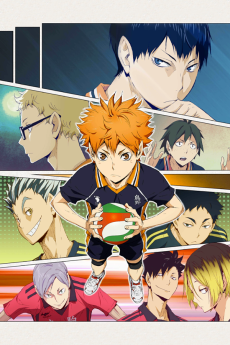 ANIME ComedyHaikyuu!! 2nd Season
ANIME ComedyHaikyuu!! 2nd Season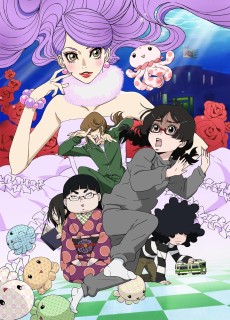 ANIME ComedyKuragehime
ANIME ComedyKuragehime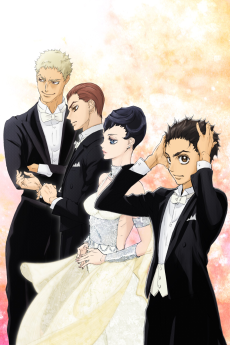 ANIME DramaBallroom e Youkoso
ANIME DramaBallroom e Youkoso ANIME DramaGinban Kaleidoscope
ANIME DramaGinban Kaleidoscope
SCORE
- (3.85/5)
TRAILER
MORE INFO
Ended inDecember 22, 2016
Main Studio MAPPA
Trending Level 3
Favorited by 7,594 Users
Hashtag #YURIONICE


